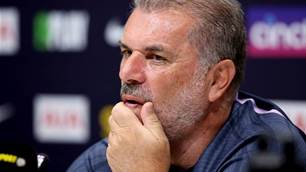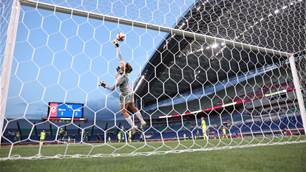Kenny Dalglish returned to Premier League football in January 2011 insisting football had changed little during his 10-year hiatus from management.
After just over 16 months in charge at Liverpool he found that although the game may have been similar, the landscape surrounding it was vastly different.
For a man who was brought up on winning trophies, he discovered that putting silverware in the cabinet was not a panacea for all ills.
In truth, it was never the case during his first spell at Liverpool, but such was their dominance during the 1980s and 1990s that if a league title was not won one year it was a fairly safe bet it would be reclaimed at the next time of asking.
Dalglish's parting comments on his departure from Anfield, that he would not have swapped February's Carling Cup win for anything, highlighted the difference between his thinking and that of owners Fenway Sports Group.
For the Americans, whose experience of football is limited having bought the club in October 2010, it is all about the Champions League - if only for the revenue streams.
Dalglish left feeling that winning one trophy and coming within the width of a goalline of possibly picking up another should have been enough encouragement for the owners. It was not.
What changed from a month ago, when chairman Tom Werner said Dalglish had their full backing, only FSG's inner circle will know but it is apparent they did not have confidence in the 61-year-old to build on the progress made since their arrival.
On occasions the football showed fleeting glimpses of that which Dalglish would recognise from Liverpool teams gone by, but there were many other times when it did not rise above mediocre.
Just six league wins at home all season and a failure to score goals accounted for many of their problems but Dalglish, in stubbornly defending the players he signed at vast expense, was negligent in not addressing issues sooner.
Who knows what he could have achieved had he signed a penalty-box poacher in January - an oversight highlighted just across Stanley Park, where Everton picked up Nikica Jelavic for a relative snip and saw him transform their campaign so significantly they finished above their near neighbours for the first time since 2005.
But while Dalglish stuck to principles on the field, his intransigent attitude off it showed how little he had grasped of how the modern game had changed.
With 24-hour news channels and a worldwide fanbase only the click of a button away, the Scot's public profile took a battering due to his stance on the Luis Suarez-Patrice Evra racism row and a lack of a coherent PR strategy from within the club.
While other managers have learned to play the media game, or at the very least accept it, Dalglish always gave the impression he would rather being doing anything but.
His apology for "conduct not befitting a Liverpool manager" after one post-match television interview told its own story.
But the club's iconic figure leaves Anfield having restored stability and brought harmony to the fan base after the internal turmoil generated during the dysfunctional regime of Tom Hicks and George Gillett.
To paraphrase one of his favourite sayings, he put a smile back on people's faces. All except the American ones who ultimately mattered that it is.
Related Articles

Postecoglou looking to A-League to 'develop young talent'
.jpeg&h=172&w=306&c=1&s=1)
Big change set to give Socceroos star new lease on life in the EPL













